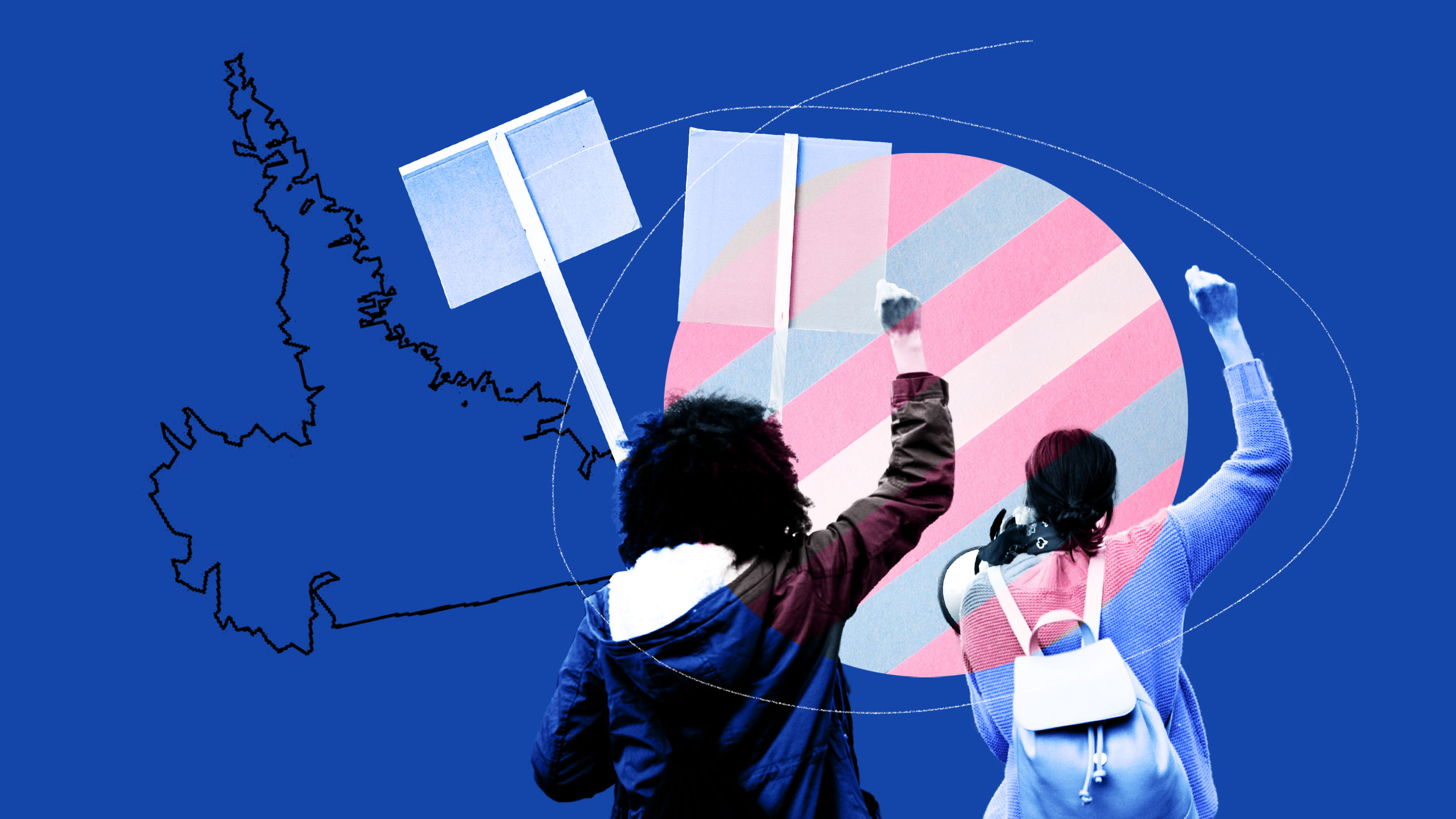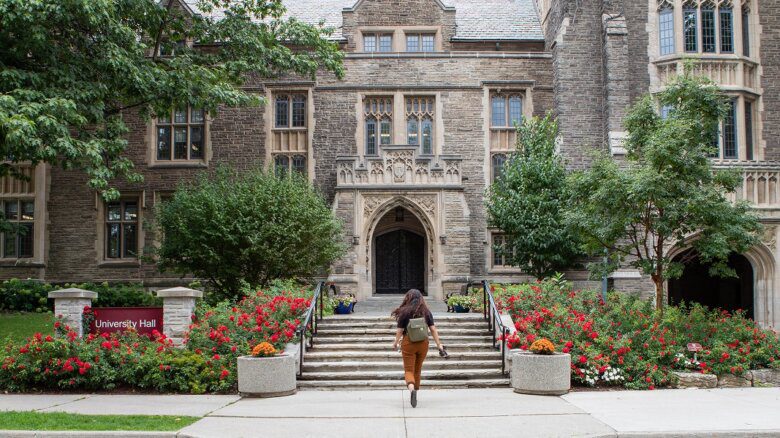Students at a Newfoundland and Labrador high school reportedly walked out of class last week to protest their trans classmate being denied access to the women’s bathroom.
The controversy began when faculty members at Menihek High School in Labrador City, a town in western Labrador near the Quebec border, informed a trans student—who was not named in media reports—that they were only allowed to use the school’s gender-neutral bathrooms. According to CBC News, these facilities are in the building’s junior wing, which forces seniors to choose between going to the bathroom and going to class on time.
In response, more than 75 students joined in a Friday protest outside the school, while holding signs bearing statements such as “We Want Equality” and “We Should Not Still Be Fighting for Basic Human Rights” and carrying rainbow Pride flags.
Although the student didn’t take part in the demonstration, protesters said they felt motivated to participate because many had experienced the same issues at school.
“I’m made to go use the washroom in a bathroom that I don’t feel comfortable in, that doesn’t match with who I am,” Max Murray, a non-binary student at Menihek, told CBC. “And now people who are able to access their bathroom, trans women and trans men, are getting kicked out.”
Principal Steve Murphy reportedly told students in a video that he was unaware that bathroom access had been an issue. He said the school’s policy is that students should use the restroom that reflects their gender identity.
“No one raised it as an issue until 9 this morning,” Murphy said in video footage shared with CBC. “You have to say something for us to know that we can do something about it. Tell everyone I’m looking into the issue. Okay, maybe I should have done that, that’s fine. But I didn’t think to do that before.”
But Menihek High School student Pez Jacobs pushed back against the principal’s claims, saying that students have “been fighting this for five years.”
“It makes me very happy to know that people are doing this, because I shouldn’t have to fight for my basic human rights to even use the washroom or be in the school,” Jacobs told CBC.
Tony Stack, CEO of the Newfoundland and Labrador English School District, affirmed in a statement that no student should be denied access to the restroom that matches their gender identity, and said the incident was “a misunderstanding and a misinterpretation of the use of gender-neutral washrooms in schools.” He added that the district may seek to resolve this issue by making all student bathrooms gender-neutral in the future.
“Where we can, we will retrofit as many single washroom locations as gender-neutral, and any student, no matter what their gender expression, can avail of those facilities if they prefer,” Stack said.
The school reportedly closed down because of the protest. Since then, two more bathrooms at the school have been made gender-neutral.
Although Canada has made progress with trans rights, it hasn’t been without pushback—especially with the issue of bathroom use. In 2015, a bill that would have enshrined hate crime protections on the basis of gender identity into federal law failed after a federal senate committee added an amendment that would have limited trans people’s access to crisis centres, bathrooms and changing rooms. It would have also prevented them from being housed in alignment with their lived gender in prison.
Anti-trans discrimination has been banned in Canada since 2017, when protections on the basis of gender identity in areas like housing and employment were added to the Canadian Human Rights Act. Still, some experts and activists have pointed to a rise in transphobia in Canada—saying that the fight against transphobic bigotry is not over, despite the visibility and progress trans people have enjoyed over the past few years.
Student protesters at Menihek High School signaled they would continue fighting for LGBTQ2S+ equality. But Bea Faulkner said the potential threat of suspension following the walkout has made the school a hostile environment for students.
“You shouldn’t have to come to school wondering whether or not you are going to be attacked by staff and teachers for using your own bathroom,” Faulkner told CBC. “This is not a fight against cisgender or transgender or students against teachers. This is a fight for human rights.”


 Why you can trust Xtra
Why you can trust Xtra


